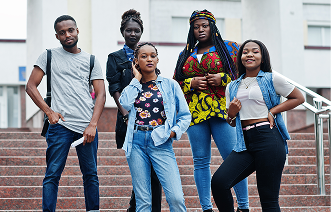Africa stands at a pivotal moment in its digital transformation journey. With one of the world’s youngest populations and a rapidly expanding tech ecosystem, the continent has the potential to become a global leader in the artificial intelligence (AI) economy. But this potential depends on one critical factor: developing talent at scale.
Across Africa, universities, startups, and governments are recognizing the urgency of preparing both young people and mid-career professionals for the demands of an AI-driven future. This preparation goes beyond simply offering coding bootcamps or short-term training. It requires long-term investment in education, research, infrastructure, and ethical awareness.
Several promising initiatives are already underway. In Rwanda, the government has partnered with international universities to create advanced AI research centers. In Ghana, local hubs are training youth in machine learning using open-source materials tailored to African languages and datasets. In Kenya and Nigeria, tech communities are building grassroots academies focused on practical AI applications in sectors like agriculture, health, and logistics.
Yet challenges remain. Access to computing resources is limited in many regions, and few educational institutions currently offer AI-focused degrees. Many professionals also face barriers to transitioning into AI roles due to gaps in foundational knowledge, mentorship, or industry networks.
To bridge these gaps, successful strategies are beginning to emerge. One is integrating AI education into existing curricula, not as a standalone subject but as a tool across disciplines—from health to business to engineering. Another is investing in low-bandwidth learning tools that can reach students in underserved or rural areas. Partnerships between academia and industry also play a key role in ensuring that training aligns with real-world demands.
Moreover, ethical and culturally relevant training is essential. Preparing Africa’s workforce for the AI economy is not just a technical challenge—it is a social one. Future professionals must understand not only how to build AI systems, but how to design them responsibly, with fairness, accountability, and inclusion in mind.
Africa’s greatest asset in the AI age is not just its data or markets—it is its people. Equipping the next generation of talent will require sustained effort, creative thinking, and a commitment to educational equity. But the return is clear: a workforce ready to lead in AI innovation not just for Africa, but for the world.


